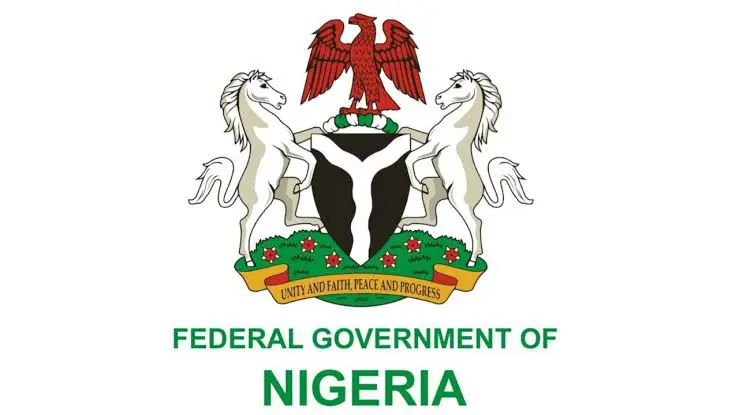News
[OPINION] Northern Amnesia: Governor Sani, The Table Shaker

By Israel Adebiyi
“When truth is buried underground, it grows, it chokes, it gathers such explosive force that on the day it bursts out, it blows up everything with it.”
— Émile Zola
There’s a kind of silence that settles over the land after years of failure. A silence made of shame, denial, and carefully chosen half-truths. In Northern Nigeria, that silence has become an institution — polite, predictable, and profoundly dangerous.
Then came Uba Sani — with words that cut through like harmattan wind.
At a recent citizen engagement summit in Kaduna, Governor Uba Sani did what few northern politicians have ever dared. He faced the region and told it the truth: “We failed our people.” Not they. We. All of us who have held power in the North in the past two decades, he said, must offer the people an apology.
In that single moment, he shattered the convenient forgetfulness the North has grown used to. He didn’t call out Abuja. He didn’t drag the South. He didn’t blame some vague colonial past or “outsiders.” He pointed the finger inward — and included himself.
That is no small thing. That is not politics. That is an act of courage.
MORE FROM THE AUTHOR: OPINION: Protesting Police Pensioners And Fela’s Double Wahala Melody
Because what Governor Sani spoke to is not just political miscalculation. It’s a generational betrayal. A betrayal that has left too many Northern children unschooled, too many women dying in childbirth, too many communities in darkness, and too many homes listening for the next gunshot.
Let’s stop for a moment and look at the evidence — not the emotion, but the math.
According to the 2022 National Multidimensional Poverty Index, nine of the ten poorest states in Nigeria are in the North. In Sokoto, over 90% of people live in poverty. Kebbi, Zamfara, Jigawa — same story. We’re not just failing; we’ve normalized failure.
And yet, this is the region that has held the most power in Nigeria since independence. Presidents. Military heads of state. Senators. Generals. Governors. Ministers. National Security Advisers. We’ve produced them all. But not the outcomes.
We’ve built palaces in Abuja, but not a working school in Shinkafi. We’ve padded budgets but abandoned hospitals in Birnin Kebbi. In some states, over 60% of children aged 6–15 have never seen the inside of a classroom. What kind of leadership allows this?
Northern mothers still die in delivery rooms at three times the national average, according to the latest NDHS report. Some rural health centres don’t even have paracetamol. The elites fly abroad. The poor bury their dead.
MORE FROM THE AUTHOR: [OPINION] BUHARI: The Man Who Missed Redemption
Security? Forget it. From Zamfara to Katsina to Niger, bandits have made homes out of forests. Whole villages are ghost towns. And yet, most of the top military chiefs in the last decade came from this region. Who, then, is to blame?
Let’s talk money. The North is land-rich but cash-poor. While Lagos alone contributes over 30% to Nigeria’s GDP, most northern states struggle to hit 1%. But the same northern governors go cap-in-hand for federal allocation and call it development. Where are the industries? Where is the productivity?
This is what Sani is shaking — a region that has grown comfortable with underdevelopment and allergic to self-reflection.
Some elites have pushed back, of course. Former senators and political juggernauts who built their careers on recycled loyalty have tried to downplay his remarks. They say he was too harsh. That he forgot their “service”. That he shouldn’t “wash dirty linen in public.”
But if that linen hasn’t been washed for 40 years, where should it be aired?
MORE FROM THE AUTHOR: OPINION: Protesting Police Pensioners And Fela’s Double Wahala Melody
Let’s be honest — it is easier to blame Buhari, or Tinubu, or the South. But Sani refuses the easy route. He says: we, the North, are not victims here. We are architects of our own decline.
He refuses to play the amnesia game.
You can feel the discomfort in the air. He has stepped on toes — and many of those toes wear agbadas. But the truth is not about comfort. It’s about course correction.
This isn’t about just Uba Sani. It’s about whether the North still has the capacity to face its reflection. To see the rot — and clean house. To stop building dynasties and start building schools. To stop naming roads after ancestors and start giving roads to rural farmers.
Too many of our children are stuck in almajiri cycles while the children of the elite occupy UK universities. Too many of our mothers die in labor while wives of past governors set up foundations for photo-ops. Too many old names have stayed too long — and are grooming their sons for the throne.
That is what Governor Sani is fighting: not just silence, but the inheritance of silence.
He says, “Let’s apologise.” But apology alone is not enough. It must be backed with a plan. A Marshall Plan for the North — real investment, not campaign slogans. Functional education, not workshops. Security that protects, not retaliates. Jobs that empower, not enslave.
It must come with the rethinking of what power is: not title, not convoy, not prayer photos — but legacy measured in lives changed, not lives lost.
Governor Sani’s voice may be lonely now. But history listens to such voices. And perhaps, just perhaps, in that lone voice, the North might find a new beginning.
Because silence, when it becomes tradition, is nothing but consent.
And now, one man has dared to shout.
News
Nigerian Govt Launches LG Proof Of Address To Improve Citizen Identification

The Federal Government has officially rolled out the Local Government Proof of Address, POA, project, an initiative designed to strengthen national security, improve citizen identification, and enhance service delivery across the country.
The project, initiated by the Association of Local Governments of Nigeria, ALGON, was formally approved through a circular issued by the Office of the Secretary to the Government of the Federation, OSGF, with reference number 5964B/S,13/VBA/T.IIIA/704.
According to the circular, the POA scheme took effect from October 1, 2025. However, implementation is at various stages in different federal and state Ministries, Departments and Agencies, MDAs.
According to the circular, under the new arrangement, all federal and state Ministries, Departments and Agencies, MDAs, government-owned corporations, and public institutions are mandated to replace the long-standing use of utility bills as proof of residence with the standardized Proof of Address issued at the local government level.
READ ALSO:FULL LIST: FG Selects 20 Content Creators For Tax Reform Education
The circular explained that the POA project aligns with President Bola Tinubu’s eight-point development agenda, particularly, in the areas of governance reform, security enhancement, and institutional efficiency.
It is domiciled in the Office of the Secretary to the Government of the Federation, with the Nigerian Postal Service, NIPOST, serving as the coordinating federal agency.
“For years, the reliance on utility bills as proof of residence has posed major challenges. Many Nigerians do not have utility bills in their names, while others rely on outdated or shared documents that do not accurately reflect their current place of residence.
“In the same vein, the increasing use of digital services and prepaid utilities has further reduced the reliability of utility bills as a credible verification tool,” the circular stated.
READ ALSO:FG Offered 4,000 Pregnant Women Free C-section – Report
Also, it noted that while the National Identification Number, NIN, remains a critical component of Nigeria’s identity management framework, a significant number of NIN records do not capture current or accurate residential addresses, limiting their effectiveness for residency verification, security profiling, and service planning.
“The POA is therefore designed to fill this critical gap by providing verified, location-specific, and up-to-date address information directly linked to local governments.
“The POA framework places residency verification at the grassroots, where local authorities have better knowledge of their communities. By anchoring address verification at the local government level, the initiative is expected to improve community-level intelligence, crime prevention, emergency response, and population data accuracy,” it added.
READ ALSO:FG Approves N54tn MTEF For 2026 To 2028
Beyond security, the circular noted that POA data is expected to deliver wide-ranging benefits, including improved public service delivery, equitable resource allocation, disaster management planning, urban development, social intervention targeting and financial inclusion.
The circular directed state governments to lead awareness and sensitisation efforts within their jurisdictions, with technical and institutional support from the OSGF, NIPOST, and ALGON.
News
Tax Reform Law: Reps Minority Caucus Seeks Suspension Of Implementation

The Minority Caucus of the House of Representatives has demanded the immediate suspension of the implementation of the recently enacted tax reform laws.
The demand follows allegations that the statutes were unlawfully altered after being passed by the National Assembly and assented to President Bola Ahmed Tinubu.
The Minority Leader, Rep. Kingsley Chinda, in a statement issued on Monday alongside other principal officers of the caucus, expressed deep concern and overwhelming disappointment over the controversy surrounding the tax reforms.
READ ALSO:New Tax Laws: Suspend January 2026 Implementation — Senator Ndume Tells Tinubu
According to the caucus, the allegations, if proven, strike at the core of Nigeria’s legislative integrity, constitutional order and democratic governance.
While acknowledging that disagreements often accompany major reforms, the caucus stated that the present situation goes far beyond routine policy debate, as it involves claims that the laws were fraudulently altered, gazetted and circulated in a form different from what was duly passed by both chambers of the National Assembly and signed into law by the President.
It recalled that the matter was formally raised on the floor of the House during a recent plenary session, leading to the constitution of a high-powered investigative committee to probe the allegations.
READ ALSO:FIRS Confirms NIN As Tax ID
The caucus pledged its full support for the investigation, assuring Nigerians that the truth would be uncovered and that anyone found culpable would be held accountable.
“We want to assure Nigerians that the Minority Caucus of the House of Representatives will stand with the entire House to ensure that the circumstances surrounding this illegality are exposed and the culprits brought to book in the interest of justice,” the statement read.
News
Outrage, Confusion Trail Rumours Of Mohbad’s Wife Giving Birth Two Years After His Death

Many Nigerians on social media have reacted to the trending news about Wunmi, late singer Mohbad’s wife.
Rumours have emerged online that Wunmi recently welcomed a new baby with another man.
The rumours came a month after Mohbad’s family banned Wunmi from using their surname.
READ ALSO:Nigerian Engineers applaud Gov. Mohammed’s $5bn Investment Deals
The viral rumour that started on X sparked controversy on social media with netizens raising eyebrows – since Mohbad died on September 12, 2023, and his body is still in the morgue.
The development has revived calls for a DNA test on her son with the late singer, Liam, who was five months old when Mohbad died.
Following the controversial circumstances surrounding Mohbad’s death, and allegation of infidelity against Wunmi, the deceased’s father, Joseph Aloba, requested a DNA to determine Liam’s paternity.
Reacting to the development, actor Stanley Ontop in a post on Instagram wrote “Mohbad dled in 2023 Him wife give birth in 2025? What God can not do does not exist! Clap hand for Jesus. Anyways in life as a man try not to kpai, no matter what. Life goes on Anyways congratulations iyawo Mohbad.”
READ ALSO:Mohbad: I Left Immediately – Angela Okorie Speaks On Group Chat Controversy
Also @MasterminddBoB wrote on X; ”Dis is not life pausing ooooo dis is her been a stupid person amid speculation of the requested DNA test for Liam..make una get sense small.”
@AgbafianTV wrote “If the News about mohbad wife allegedly giving birth is through, then know that women are ruthless in all their ways. To be able to deal with women, you’ve to be very ruthless. Don’t die because of any woman.”
@callme_Riken wrote; “I don’t know if the news about Mohbad’s wife, Wunmi, giving birth is true. But if it is. Sooner or later, she was going to move on, whether her father-in-law agreed to bury his son or not. Life doesn’t pause forever.”
@djokaymegamixer wrote on X; “I won’t be surprised if it’s later found out that the story of the late Mohbad’s widow, Wunmi, giving birth was a hoax. There is nothing these guys can’t tweet all in the name of hustling engagements for Elon Musk’s money.”

 Headline4 days ago
Headline4 days agoJUST IN: US Forces Bomb Terrorists Camps In Nigeria

 News4 days ago
News4 days agoOkpebholo Slams ₦25bn Libel Suit On Edo PDP Chairman

 Headline4 days ago
Headline4 days agoUS Dept Of War Shares Video Of Air Strikes In Nigeria

 News3 days ago
News3 days agoPHOTOS: SGF George Akume Weds Ooni’s Ex-Queen

 News13 hours ago
News13 hours agoBREAKING: Anthony Joshua Involved In Road Accident

 News4 days ago
News4 days agoTrump’s Airstrikes: Halt Military Cooperation With US Immediately – Sheikh Gumi Tells Tinubu Govt

 Headline4 days ago
Headline4 days agoU.S. Lawmaker Reacts To Nigeria, U.S. Airstrikes

 News1 day ago
News1 day agoEx-Edo Gov Obaseki Reacts As His Cousin Is Beaten, Stripped

 News4 days ago
News4 days agoShehu Sani Reacts To Trump’s Military Strikes In Nigeria

 News4 days ago
News4 days agoYULETIDE: UBTH CMD Charges Nigerians To Be Hopeful In Coming Year




















